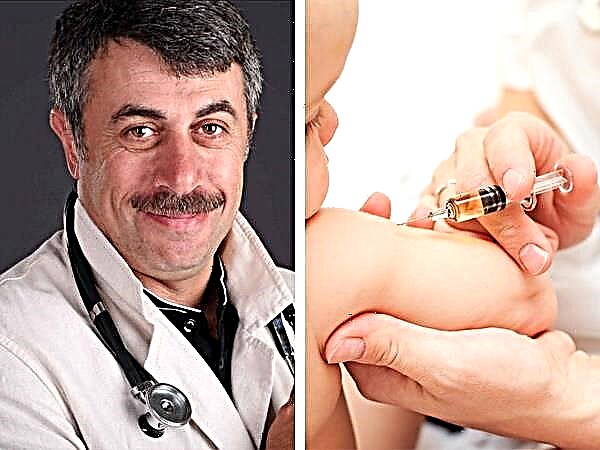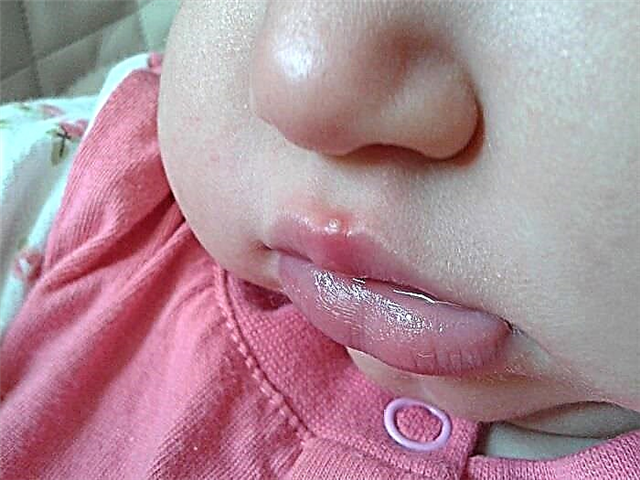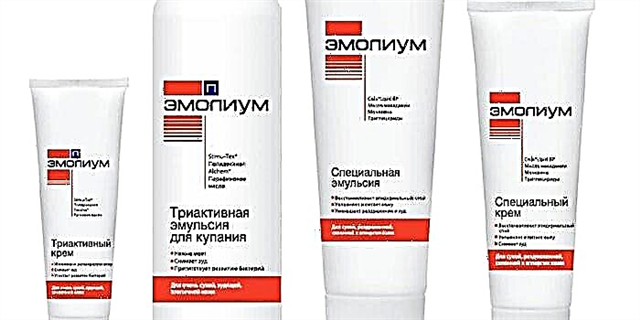The question that worries most new mothers is: why does a newborn hiccup and what to do about it? A child's hiccups start when the diaphragm contracts and the vocal cords rapidly close. Rapid closure of the vocal cords is the cause of the hiccups sound.
Since hiccups tend to bother adults, many people find it uncomfortable for babies too. However, children generally do not experience discomfort. In fact, many newborns can sleep during bouts of hiccups without being disturbed, and hiccups rarely interfere with or have any effect on the baby's breathing.
Most episodes of hiccups last from a few minutes to an hour. There is nothing to worry about anyway. In fact, many babies find hiccups quite amusing. Hiccups in an infant are normal body reflexes and parents shouldn't worry at all.
Why does the baby hiccup?
The baby hiccups even in the womb, from the second trimester. When a woman is pregnant, sometimes she feels that the body of the child is pulsating rhythmically. Perhaps at this moment the fetus has hiccups.

So why does the baby hiccup while still in the womb ?:
- the brain sends a signal to the fetal diaphragm to contract, and when it contracts, the fetus sucks in the amniotic fluid, which causes hiccups;
- fetal hiccups also occur when the baby develops a sucking reflex and thus absorbs amniotic fluid;
- rarely, a significant increase in hiccups can be a sign that the umbilical cord is wrapped around the fetus's neck and restricts oxygen flow, known as cord compression.
You shouldn't worry too much about this. But if the anxiety increases, tell the doctor, and he will order an ultrasound to check if everything is normal.
Common causes of hiccups in newborns:
- Immature diaphragm. A newborn often hiccups when his immature diaphragm contracts suddenly and irregularly. As the child grows, the contractions of the diaphragm, along with the muscles between the ribs and abdomen, become more synchronized and stronger, which gradually reduces the frequency and severity of hiccups.
- Overfeeding. This is one of the common reasons a baby hiccups after feeding. Rapid distension of the stomach or its fullness can provoke a spasm of the diaphragm muscle, leading to hiccups.
- Swallowing air. This is another reason why babies hiccup. Most babies tend to swallow a lot of air when feeding, which can also lead to hiccups. Infant hiccups also depend on the position in which the baby is feeding and other factors, such as whether you allow your baby to burp frequently during the feed to reduce the amount of air swallowed.
- Decrease in temperature.Hiccups can also occur if your body temperature suddenly drops. Since a newborn baby is less able to maintain its body temperature, any significant changes in the environment can significantly affect its body temperature. Therefore, it is advisable to keep children warm and comfortable.
- Mother's diet.The baby often hiccups because of the mother's diet. Regardless of what the mother drinks or eats, the nutrients consumed are passed on to the baby through breast milk. Newborns are more likely to have hiccups after feeding if the mother consumes peanuts, eggs, wheat, caffeine, chocolate, citrus fruits, and soy products before feeding the baby. For best results, avoid foods that could cause your baby to hiccup at least an hour before feeding.
- Acid reflux. Regular hiccups, even when the baby is not overfed or swallowed air, can signal a possible underlying problem. Gastroesophageal reflux disease (known as GERD) is a condition in which some stomach contents are ejected into the esophagus. This can cause pain and hiccups. However, hiccups are usually not the only symptom of GERD. Other indicators that the baby has seen include colic-like behavior associated with pain, nighttime moods, frequent regurgitation, and abdominal pain after breastfeeding. If, after making changes to feeding, the baby often hiccups or has any other symptoms associated with GERD, talk to a specialist about the problem.
- Allergy. The baby may be allergic to certain proteins found in formula or even in breast milk, which in turn causes an inflammation of the esophagus called eosinophilic esophagitis. As a reaction to the condition, the diaphragm spasms, causing hiccups.
- Irritants in the air. Babies have a sensitive respiratory system, and any airborne irritant such as fumes, pollution, or intense odors can trigger a cough. Repeated coughing puts pressure on the diaphragm, causing it to vibrate. This can be the reason why the baby hiccups.
How to save a child from hiccups?
Even if hiccups are almost always harmless, it is best to relieve the baby from these spasms.
How to help your baby with hiccups?

Try the following methods, if the baby is tormented by hiccups, but one at a time:
- one of the simplest ways to stop hiccups in a newborn is lactation... Hiccups occur when the diaphragm becomes irritated. Drinking a small amount of breast milk when it is slowly flowing in can cause the diaphragm to relax and return to normal movement;
- give the kid some sugar... It was a popular remedy for hiccups in ancient times. If the child is old enough to eat solid food, place some sugar crystals under his tongue. If it is still small to consume solids, you can dip the teat in some freshly made sugar syrup and put the pacifier in your mouth. Or dip your finger in syrup and give it to your child.
Make sure your nipple and toe are clean.
Sugar will relieve tension in the diaphragm, thereby stopping the baby's hiccups;
- baby's back massage. This is a more direct way to relieve a newborn's hiccups. Place your child in an upright sitting position and gently rub their back in a circular motion from the waist to the shoulder. You can also put the baby on his stomach and do the same movements;
Be gentle and don't apply too much pressure. The idea is to release tension in the diaphragm.
- keep your baby upright after feeding. Hold your baby upright for 15 minutes after feeding. Staying upright will keep the diaphragm in its natural position, preventing any muscle flutter. You can also gently stroke his back to make him burp, which will allow air swallowed during feeding to escape. This will relax the diaphragm, thus reducing the chances of hiccups;
- distract the child. Every time your baby suffers from bouts of hiccups, try to distract him with a rattle. Hiccups are caused by muscle spasms that can be triggered by nerve impulses. Changing nerve stimuli when touched (for example, when massaging) or through some sensory input (watching a favorite toy) can reduce the frequency of the child's hiccups, if not completely stopped;
- try dill water. There is no scientific evidence to support dill water for treating gastrointestinal problems in infants. However, it is one of the most popular solutions for treating stomach discomfort that has caused hiccups in babies. Check with your pediatrician before giving your child dill water.
You can try one or more of the above methods for hiccups. It is important to remember that in a state of heightened anxiety, you can sometimes do things that will do more harm than good to the child. Therefore, control your emotions and evaluate your actions intelligently.
How to prevent hiccups in children?
You can prevent your baby from hiccupping by being careful with what they eat. Overfeeding is a common cause of hiccups in babies according to many pediatricians. Never feed your baby in large quantities at one time, as this will cause severe distension of the stomach.
Remember about the following points when feeding a small child:
- Feed your baby in small amounts over a longer period of time, rather than “stuff” his stomach in one sitting. This will help prevent overfeeding, which causes hiccups in babies.
- Keep your baby upright while breastfeeding / bottle feeding at a 35 to 45 degree angle as this will ensure a smooth flow of milk through the esophagus.
- When the baby is old enough to sit, you can feed him in a sitting position. Place the baby with its back to you to support its back. Seated feeding will prevent air from being swallowed.
- Hear the sound your baby makes while feeding. If it makes too much noise, it is probably swallowing a lot of air. Adjust the nipple in your mouth so that there is a small gap in the air. When breastfeeding, make sure your baby's mouth covers the entire nipple.
- Clean and wash the bottle regularly to prevent milk from accumulating in the nipple. Obstruction during feeding can cause the baby to swallow more air than milk, causing hiccups.
- Never let your child sleep with a full bottle. Unlike the breast, where milk flows only when sucking, the bottle provides a constant flow of milk. In addition to being life-threatening and increasing the risk of tooth decay, it can also cause overfeeding, which in turn leads to hiccups.
When a child hiccups, what shouldn't be done?
There are certain hiccups remedies that are suitable for adults. Never try them on your little ones, as getting rid of hiccups in a newborn can be with adverse consequences.
- Never try to scare if a newborn is hiccuping to get them to stop hiccupping. The loud popping of an exploding plastic bag, commonly used for hiccupping adults, can damage the sensitive eardrums of babies.
- Sour candies are great for adults, but not for children. Even if your toddler is over 12 months old, it is not recommended to feed him sour candies or other sour foods to relieve hiccups. Most sour candies contain powdered edible acid, which may not be suitable for your baby's health.
- Do not slap a child hard on the back. The ligaments in the baby's skeleton are still malleable, and any shock or brute force can seriously damage them. For this reason, never slap your child hard on the back to prevent hiccups. You can knock gently, but any excessive force can do damage.
A child's hiccups are a temporary nuisance. But if it is repeated often, then it is time to visit the doctor.
When to see a specialist?
- if it is gastroesophageal reflux. If the child constantly hiccups and always regurgitates some fluid, gastroesophageal reflux can be assumed. Gastroesophageal reflux is usually accompanied by other symptoms, including irritability, arching of the back, and crying a few minutes after feeding. If you suspect it is reflux, contact your pediatrician immediately;
- hiccups interfere with sleep and feeding. It is normal for a child to hiccup from time to time, but if the hiccups interfere with their daily activities such as eating, sleeping and playing, then you should take them to the doctor. When the hiccups become chronic and interfere with daily activities, the baby will automatically show signs of discomfort. This means that hiccups can be caused by another cause that requires medical attention;
- when the hiccups last for hours or days.Babies, including newborns, can hiccup almost daily for several minutes or up to an hour. If they generally feel comfortable and fun, then there is no cause for concern. But if the hiccups show no signs of extinction and continue for an abnormally long time, then the cause may be serious.
Observe if the baby's hiccups are accompanied by abnormal sounds such as wheezing. In such cases, be sure to consult your pediatrician.
Patience and observation will help you and your baby smile as you work your way through the hiccups. Home remedies are simple methods for suppressing and even preventing toddler hiccups. Always remember that if a baby hiccups, it is completely normal and does not harm the baby. Therefore, never worry about it, as it is a natural event. Some basic breastfeeding precautions can help manage your baby's hiccups. When the hiccups are chronic, see your pediatrician.
Article rating:



